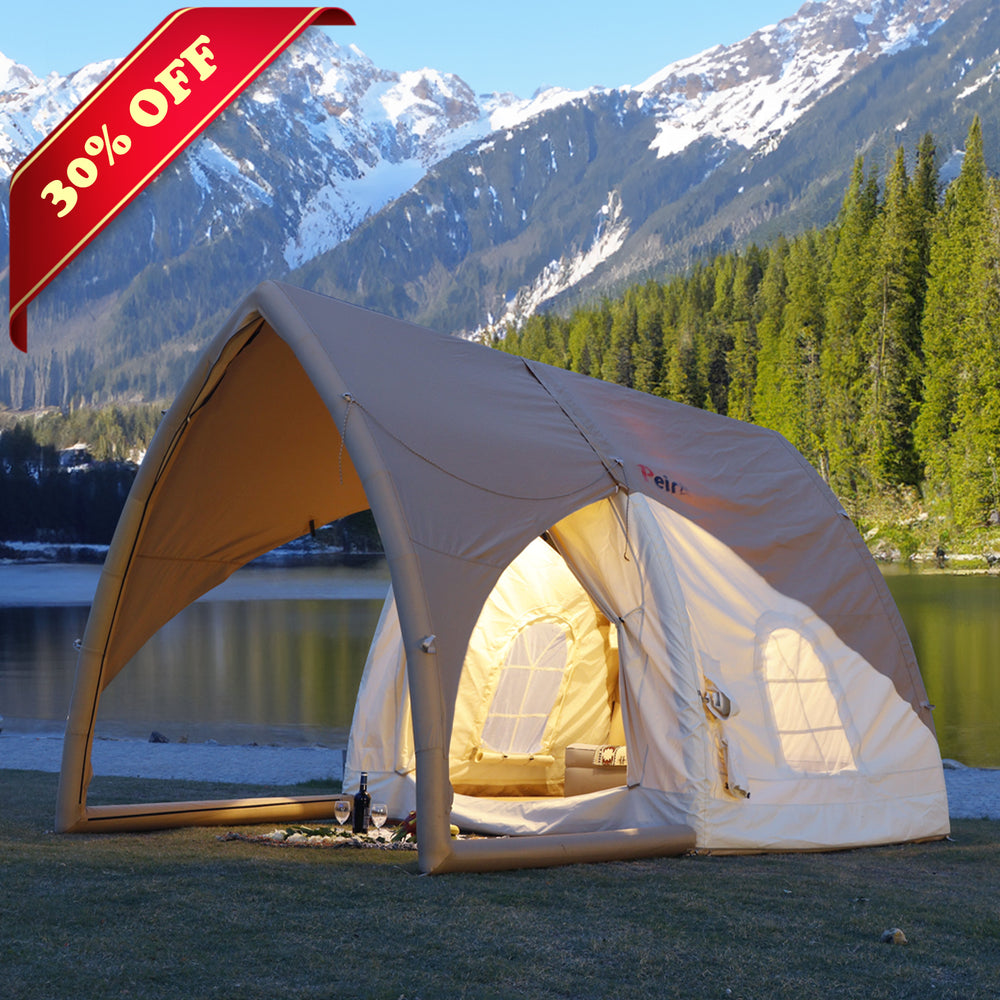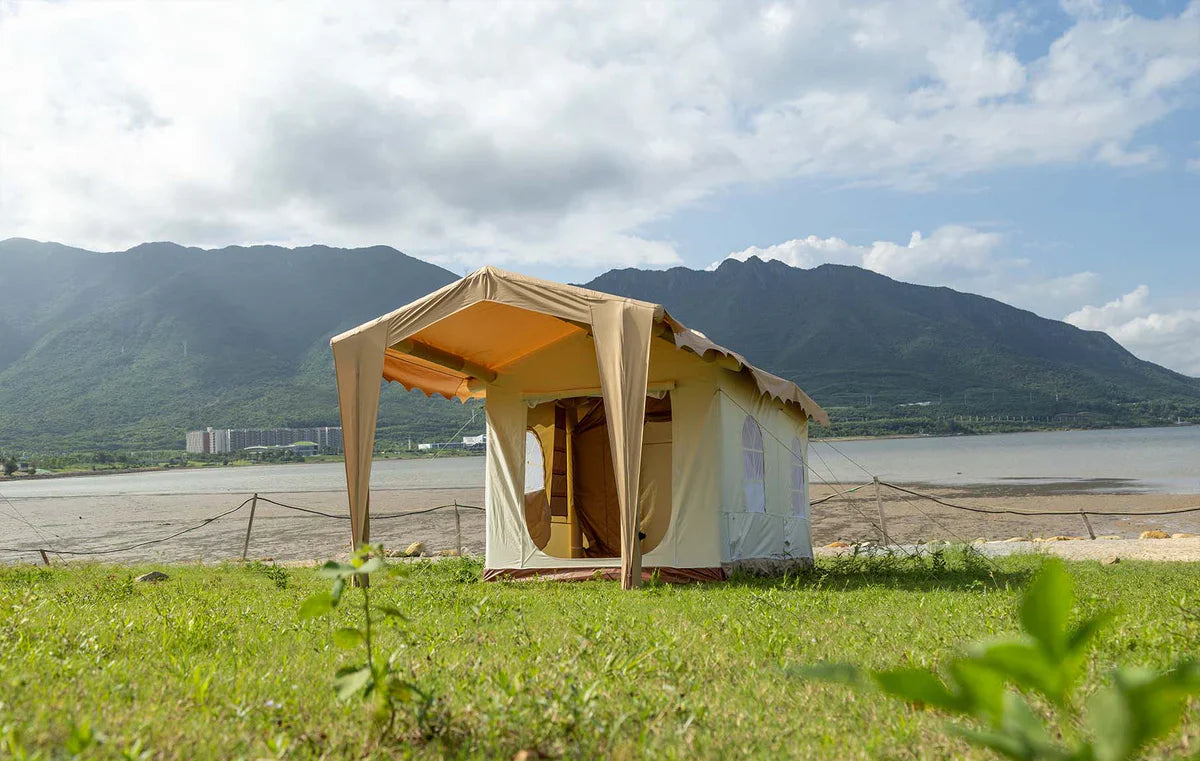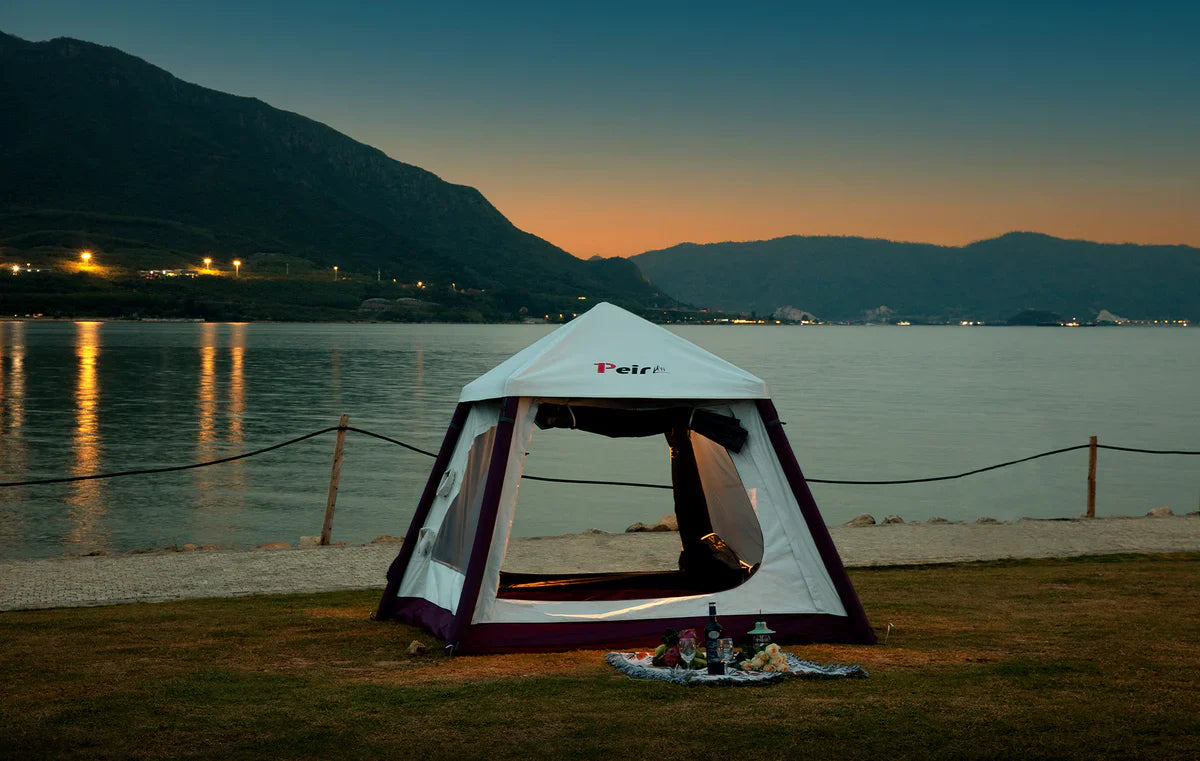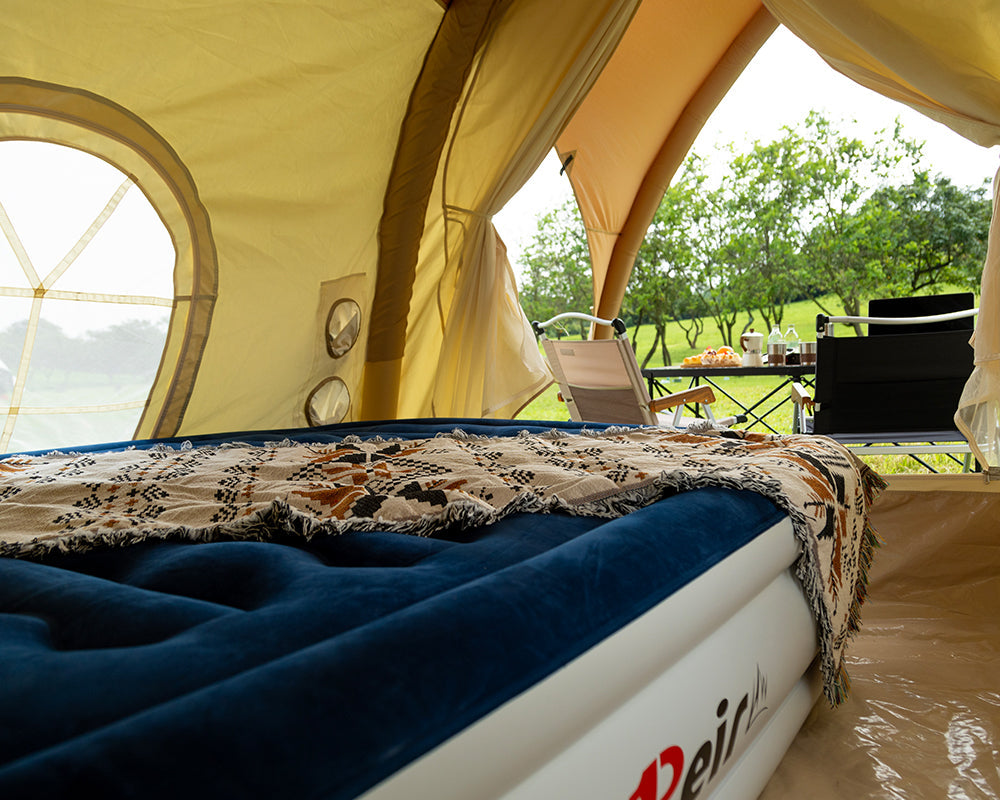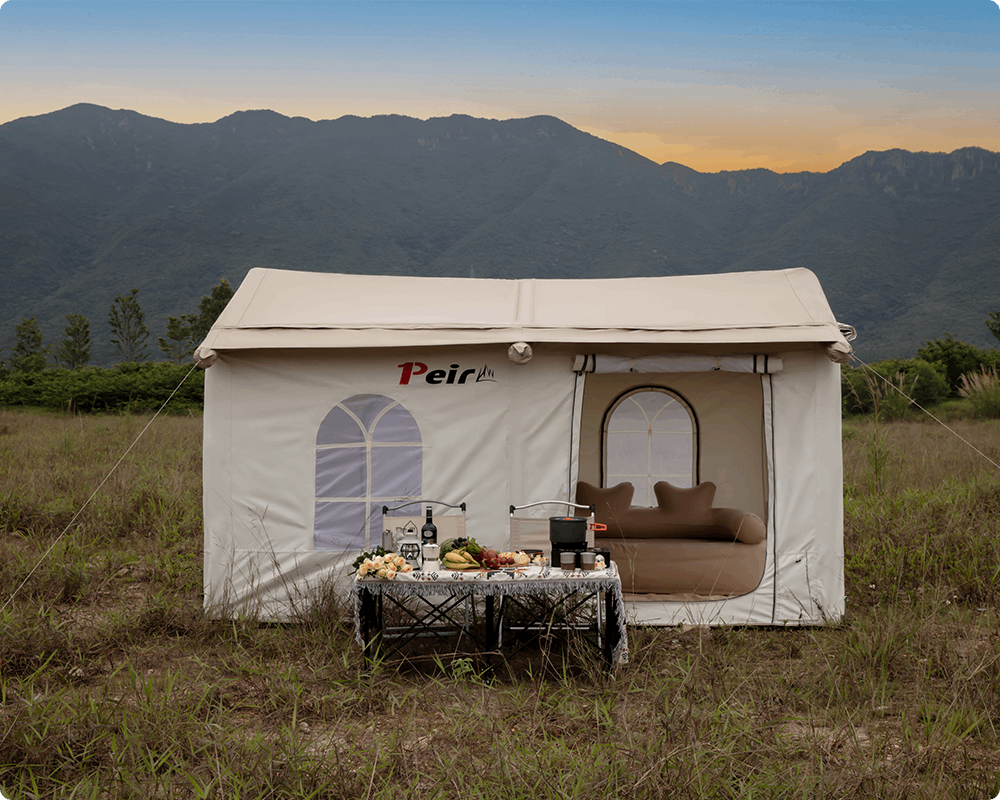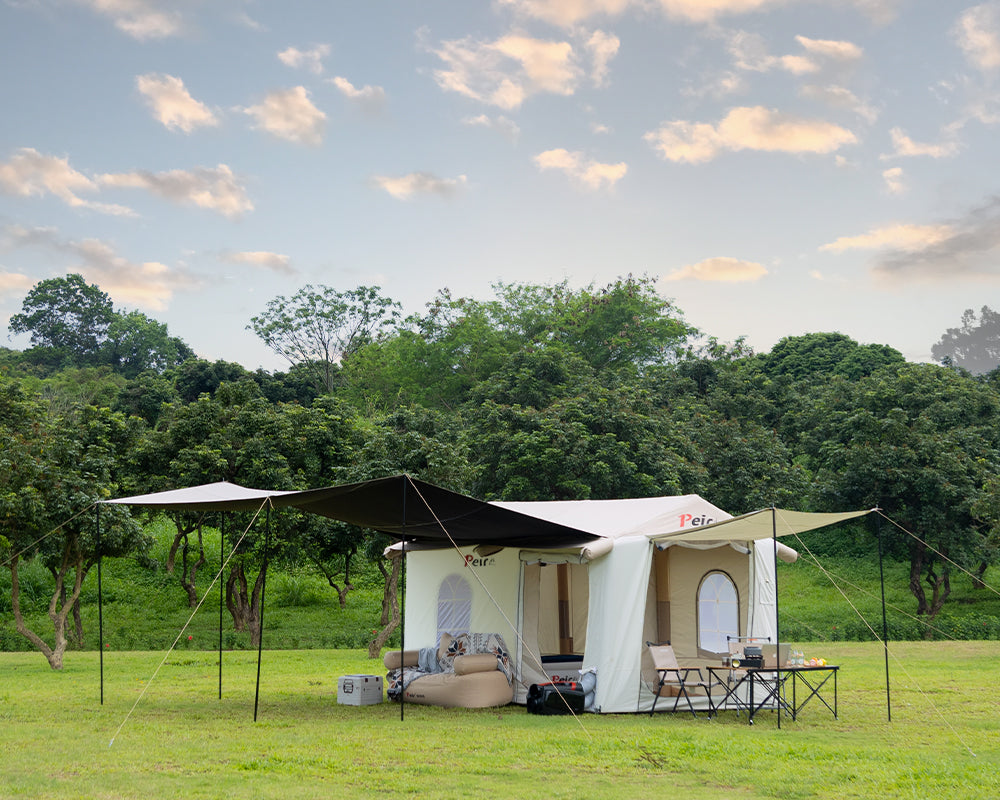Camping is one of the best ways to reconnect with nature, offering a break from the hustle and bustle of everyday life. But when it comes to camping, the question of affordability often arises: is tent camping cheaper than RV camping? The short answer is yes, but the full picture is more nuanced. Let’s dive into the details, considering initial costs, ongoing expenses, and personal preferences.
1. Initial Costs
Tent Camping:
The upfront costs for tent camping are significantly lower. A basic camping setup, including a tent, sleeping bags, and other essentials like cookware, can cost between $200 to $1000. For those who enjoy a more luxurious experience, glamping-style tents and additional gear might raise the price, but even then, it’s far more affordable than buying an RV.
RV Camping:
RVs come with hefty price tags. Depending on the type (travel trailer, fifth wheel, or motorhome), an RV can cost anywhere from $10,000 to over $100,000. Even renting an RV can cost $75–$200 per night, excluding fuel and campground fees. While RVs offer more comfort and convenience, the initial investment makes them a less budget-friendly option.
2. Ongoing Expenses
Tent Camping:
The recurring costs for tent camping are minimal. Campsite fees for tents range from $10 to $50 per night, depending on the location and amenities. Maintenance for camping gear is inexpensive and often limited to cleaning and occasional replacements.
RV Camping:
RVs incur ongoing costs that add up quickly. Campground fees for RV sites range from $30 to $100 per night, particularly at parks with full hookups (electricity, water, and sewage). Additionally, RVs consume significant amounts of fuel, with larger models averaging 8–10 miles per gallon. Don’t forget insurance, storage fees (if you’re not using it year-round), and maintenance costs, which can include everything from oil changes to repairing appliances.
3. Flexibility and Accessibility
Tent camping allows for greater flexibility. You can pitch a tent in remote locations, such as national parks, forests, or even your backyard, where RVs may not have access. The ability to explore off-grid areas is a significant advantage for those seeking adventure.
RVs, while offering more comfort, are limited by their size and the need for specific parking or hookup areas. Maneuvering an RV in remote or rugged terrains can be challenging, if not impossible.
4. Comfort vs. Experience
This is where personal preferences come into play. RVs provide home-like amenities, such as a bed, bathroom, and kitchen, which are ideal for families or those who prefer comfort over rustic charm. However, some argue that these conveniences can dilute the authentic camping experience.
Tent camping, on the other hand, immerses you fully in nature. You hear the sounds of the forest, feel the morning dew, and see the stars unobstructed. As someone who loves the simplicity of sleeping under the stars, I find that tent camping offers a connection to nature that RVs can’t replicate.
5. Environmental Impact
Tent camping tends to have a smaller environmental footprint. Without the fuel consumption and emissions associated with RVs, tent camping is a more eco-friendly option. However, this depends on individual behavior, such as practicing Leave No Trace principles and using sustainable gear.
6. Weather Considerations
Weather can significantly impact your decision. Tents offer little protection against extreme weather, making them less ideal in heavy rain or freezing temperatures. RVs provide insulation and climate control, making them a better choice for year-round camping.
Recommend:https://peirhwoutdoor.com/products/inflatable-house-tent
Final Thoughts: Is Tent Camping Cheaper?
Yes, tent camping is undeniably cheaper than RV camping when you consider both initial and ongoing costs. However, the decision isn’t just about money—it’s about the kind of experience you want.
As someone who has tried both, I appreciate the affordability and immersive experience of tent camping, but I also understand the appeal of RV camping, especially for families or longer trips. Ultimately, the choice depends on your budget, comfort preferences, and how you want to experience the great outdoors.
Whether you choose a tent or an RV, the memories you create while camping are priceless.






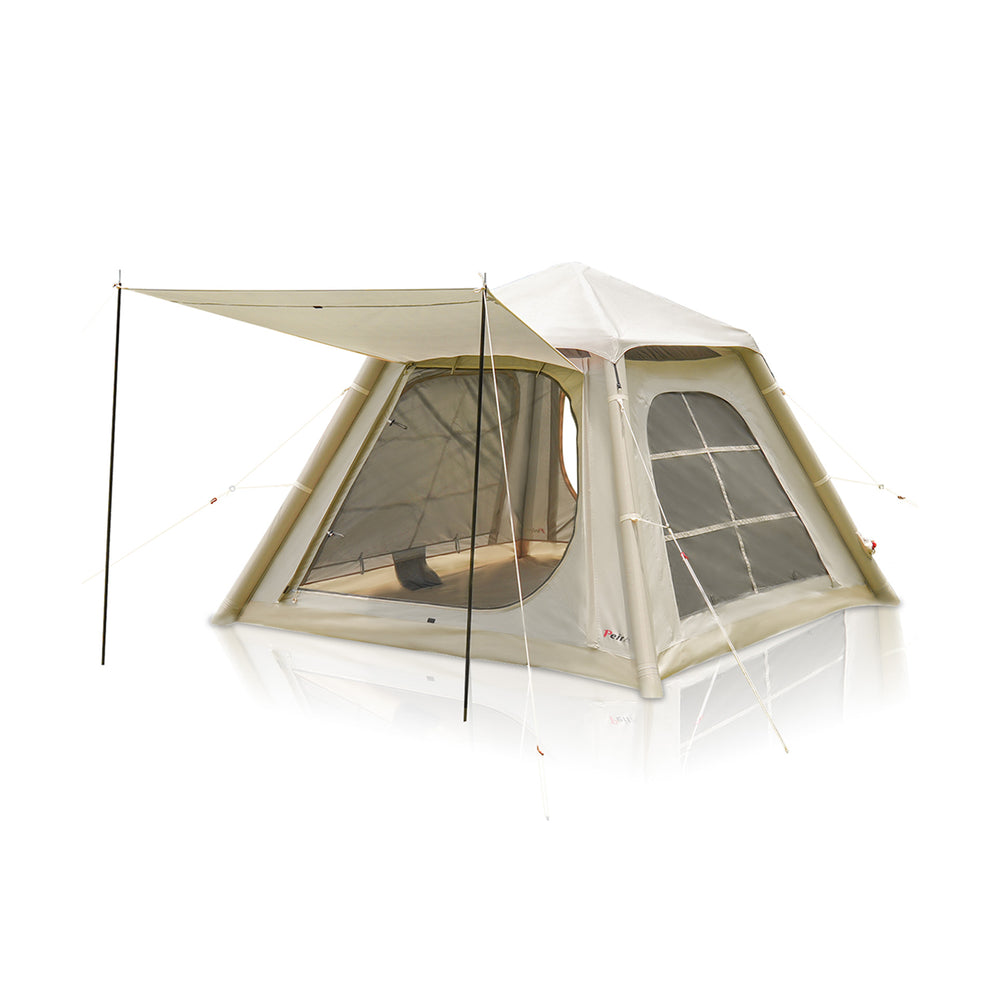
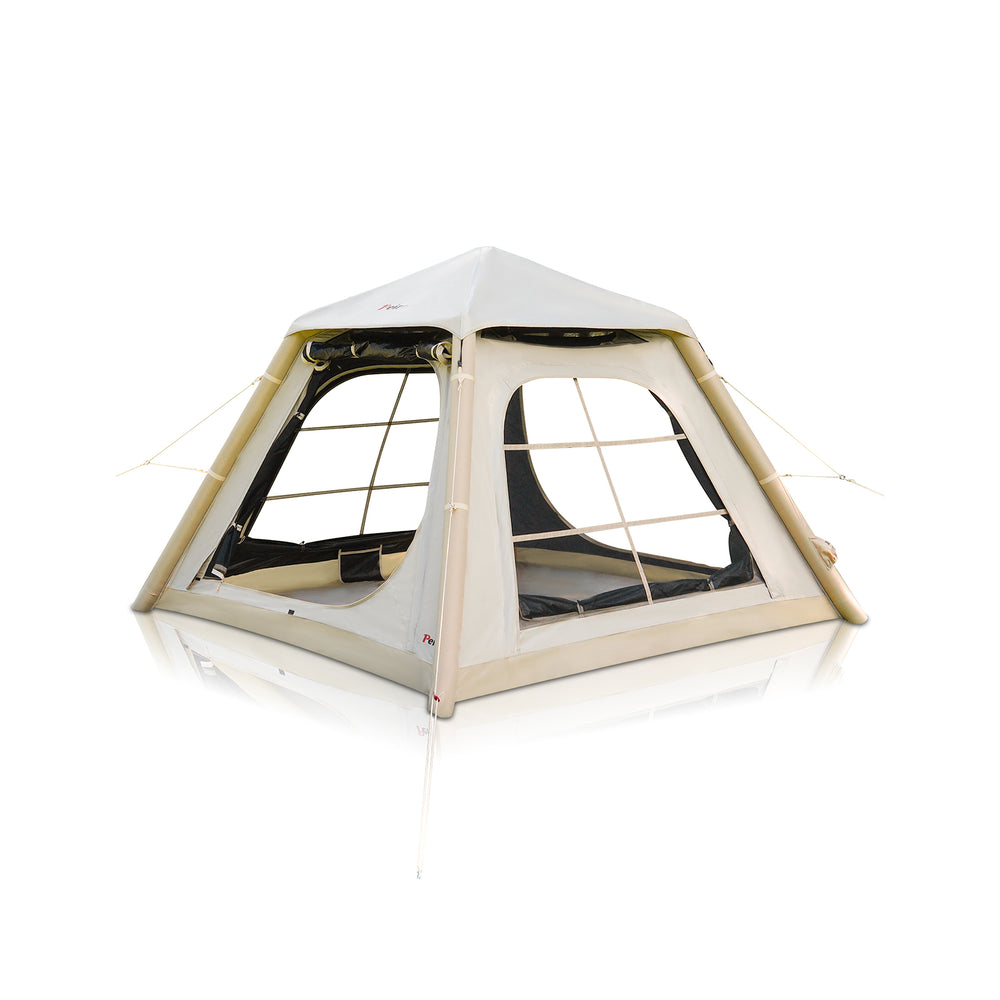
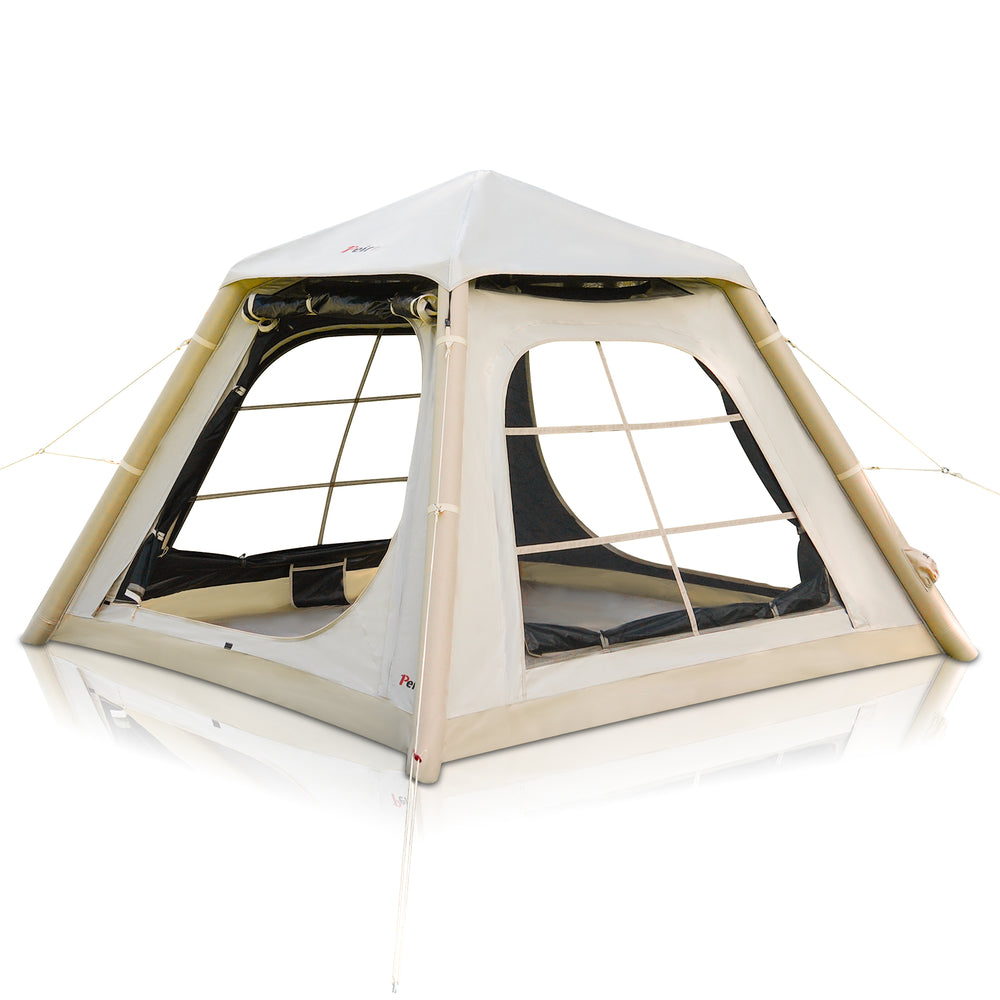
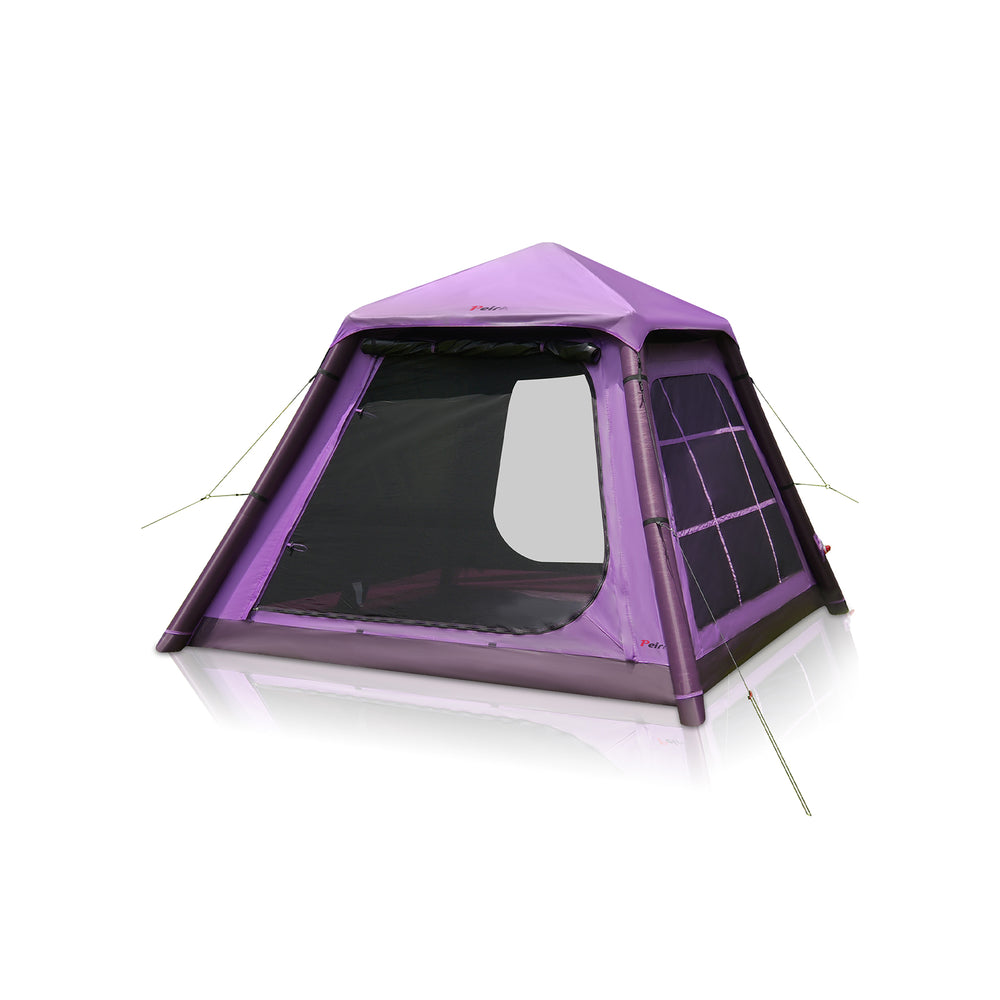


 Peirhw Inflatable House Tent - Starry Night Love
Peirhw Inflatable House Tent - Starry Night Love
 Peirhw Glamping Tents - Friendship Castle
Peirhw Glamping Tents - Friendship Castle
 Peirhw Inflatable Canopy Tent - Adventurer
Peirhw Inflatable Canopy Tent - Adventurer


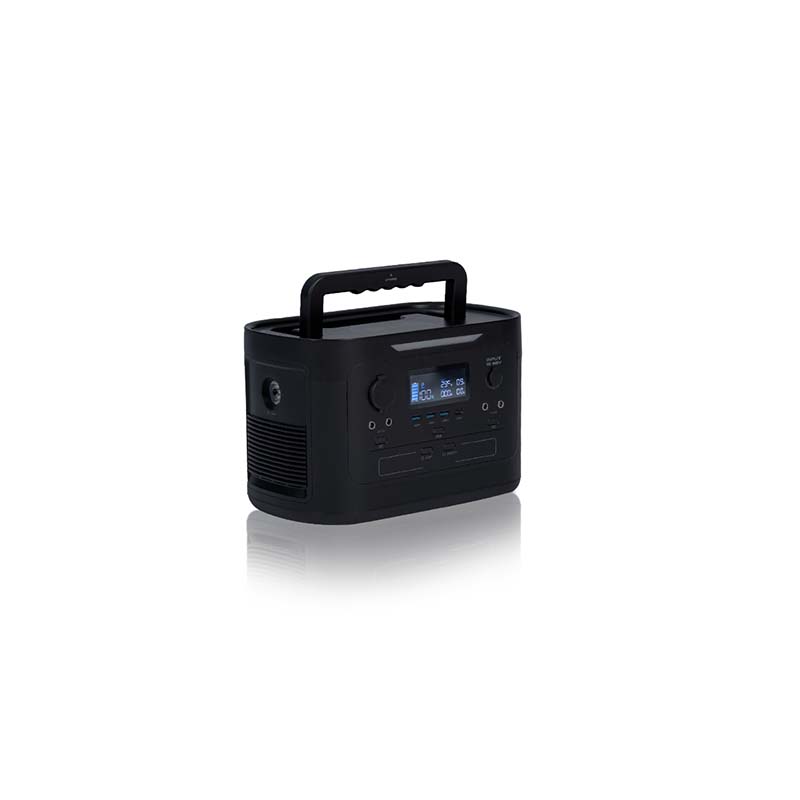
 Peirhw Portable Air Conditioner
Peirhw Portable Air Conditioner
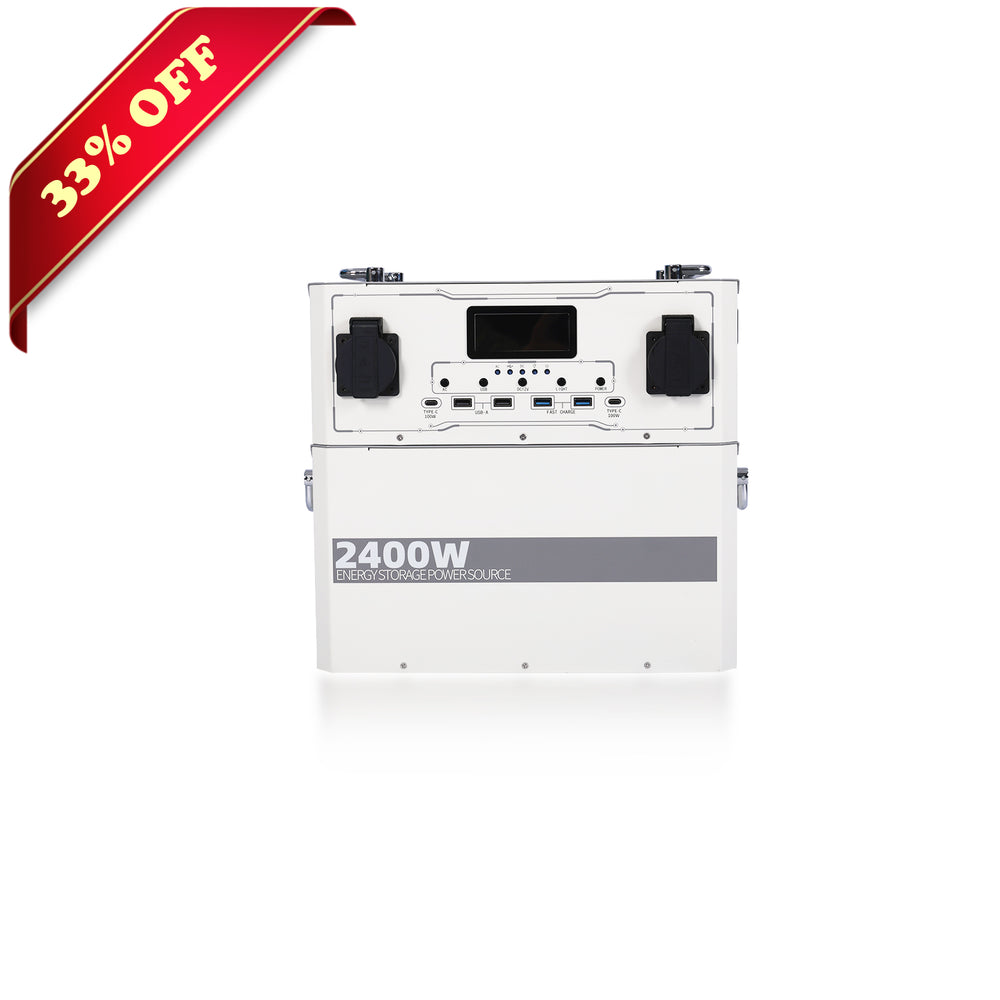 【Advance Sale】Peirhw Portable Power Station 2400W
【Advance Sale】Peirhw Portable Power Station 2400W
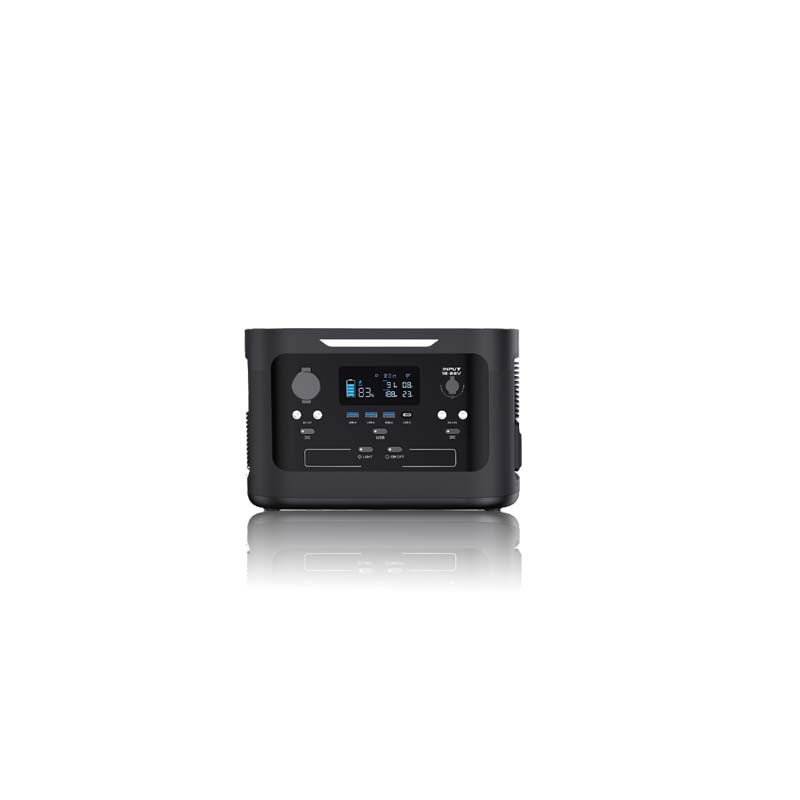 【Advance Sale】Peirhw Portable Power Station 600W
【Advance Sale】Peirhw Portable Power Station 600W





 Peirhw Self Inflating Sleeping Pad
Peirhw Self Inflating Sleeping Pad
 Peirhw Air Mattress (8" Queen Type)
Peirhw Air Mattress (8" Queen Type)
 Peirhw Camping Sleeping Bag
Peirhw Camping Sleeping Bag

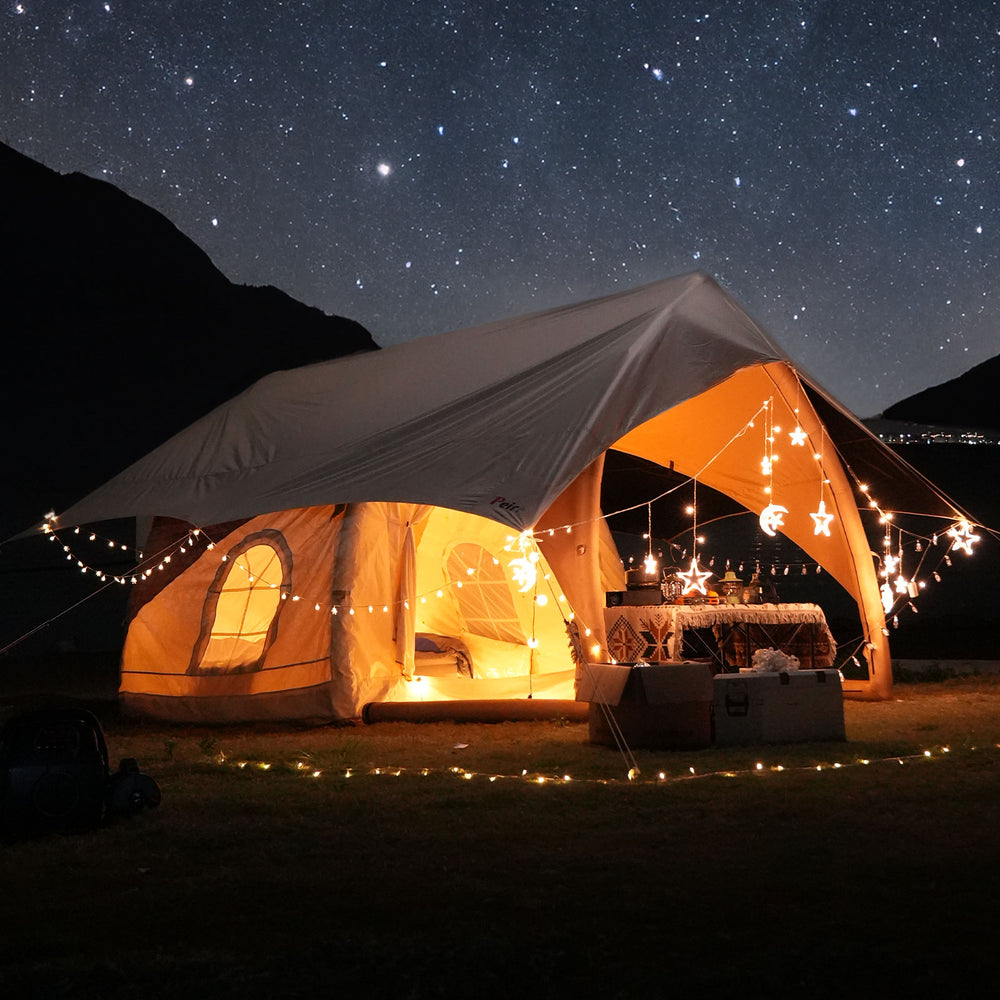
 Peirhw Butterfly-shaped Canopy for Camping
Peirhw Butterfly-shaped Canopy for Camping
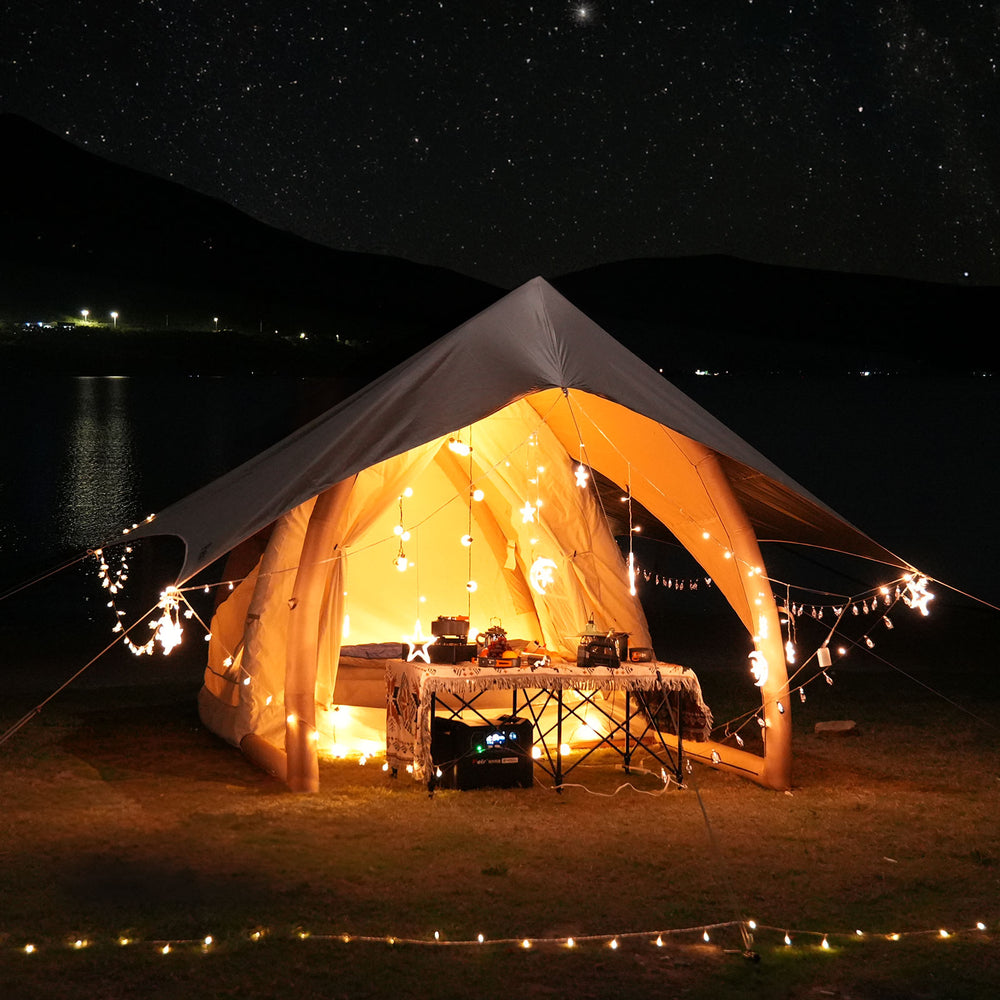 Peirhw Camping Waterproof Canopy (Cannot be Purchased Separately)
Peirhw Camping Waterproof Canopy (Cannot be Purchased Separately)

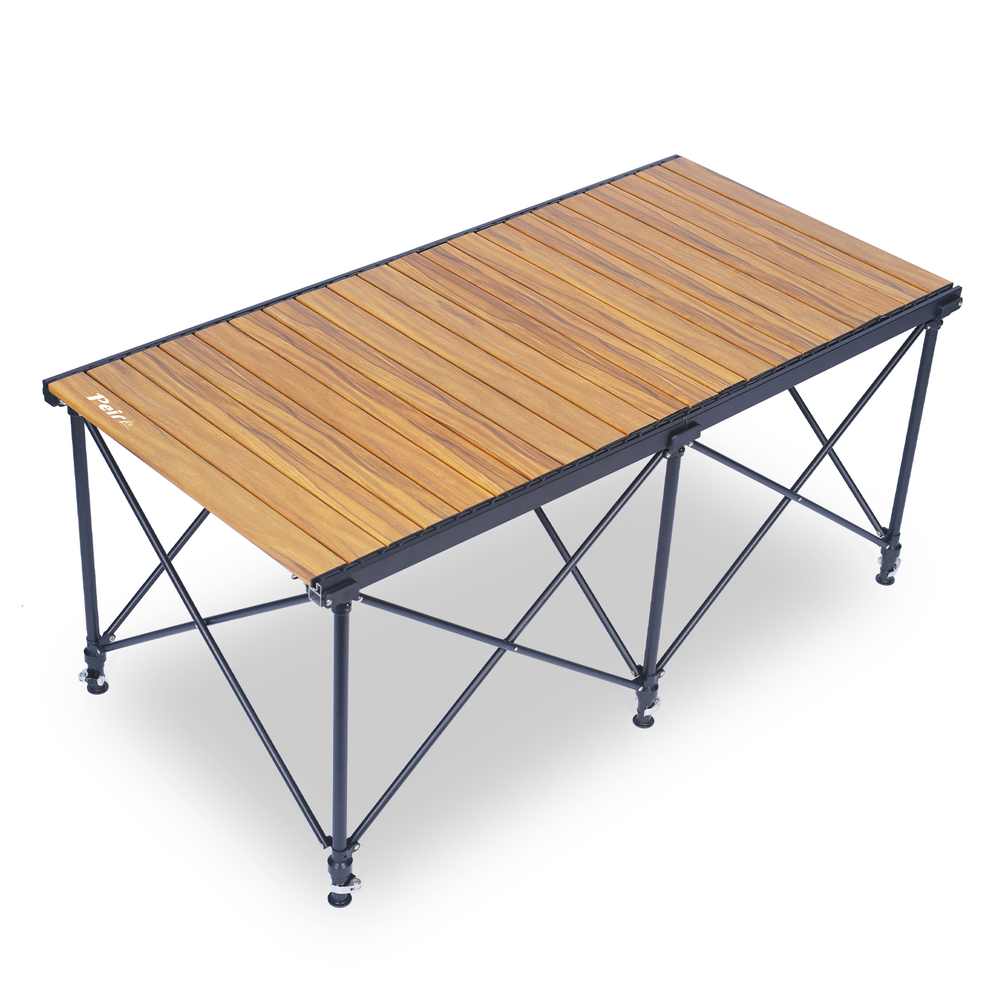
 Peirhw Outdoor Folding Chairs
Peirhw Outdoor Folding Chairs
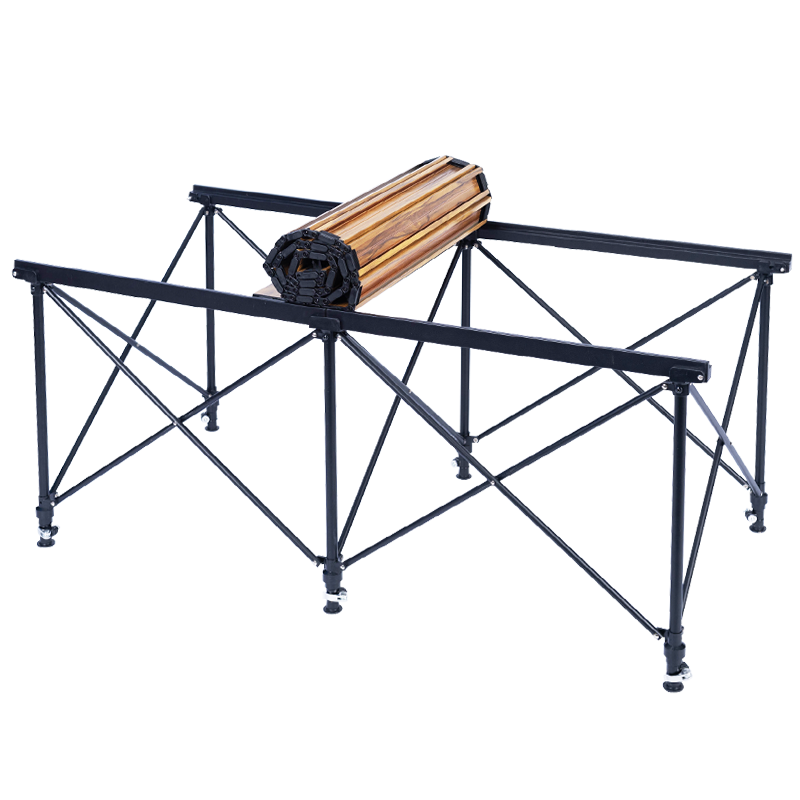 Peirhw Folding Camping Table
Peirhw Folding Camping Table





